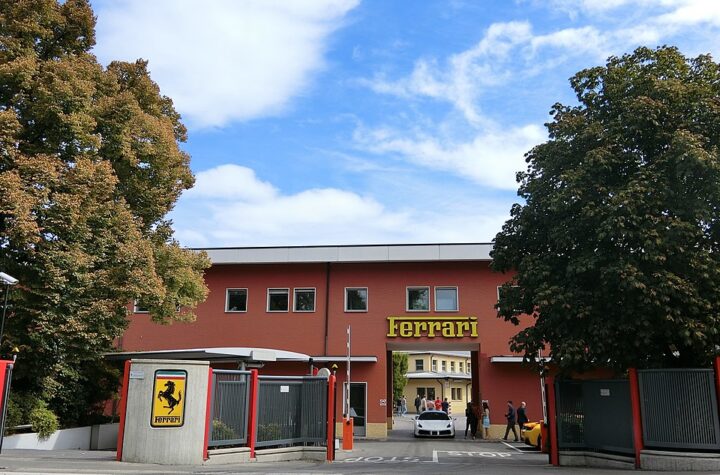
IHS Global Insight auto analyst Tim Urquhart’s note on GM’s plans for Opel follows
GM’s planned restructuring plan for Opel/Vauxhall closely matches that of Magna’s in terms of job losses and capacity reduction
Significance
The acting chief executive of GM Europe, Nick Reilly, has said that the company will cut capacity by 20-25% which in turn will lead to a reduction in headcount across the unit of between 9,000 and 10,000.
Implications
GM has always said it would have to make significant cuts if it retained ownership of its Opel and Vauxhall unit. What is interesting is how close its plans are to Magna’s in terms of outright job losses, which will place the German government in an invidious position with the EU if it refuses to offer the same loan guarantees that were on offer to Magna.
Outlook
Reilly denied that there would be a “bidding war” between European governments over job losses which is effectively what happened with the Magna bid. However, he also appeared to contradict this assertion, by saying that the restructuring plan would be influenced by commitment from European governments.
The acting chief executive of General Motors (GM) Europe Nick Reilly has announced the rationalisation plan for the Opel and Vauxhall units. According to a Financial Times (FT) report, the company will cut production capacity by between 20 and 25% which will in turn lead to a reduction in staff numbers of between 9,000 and 10,000 of the company’s current level of around 50,000. What is immediately apparent about these plans is how similar they are to the kind of numbers that Magna International was talking about implementing if it had managed to complete its successful acquisition of a 55% stake in Opel along with its Russian state bank financial backer, Sberbank. Magna’s bid was left high and dry by GM’s decision to retain ownership of Opel and Vauxhall, and now it appears that the GM will employ a strategy very similar to Magna’s in terms of “right-sizing” its European unit. GM is looking to raise around 3.3 billion euro (US$4.9 billion) in order to restructure Opel and while it is willing to raise some of this amount itself, it also hopes to secure some of this financing from the German government, and from other European governments that host Opel and Vauxhall plants. However, there is no doubt that GM’s management and Nick Reilly face a tough task in winning support from the German government, which was providing the lion’s share of the 4.5 billion euro of loan guarantees to the Magna bid, which was heavily backed by a wide range of German politicians in the run-up to the German general election which took place at the end of September. Indeed the new German finance minister Rainer Bruederle is taking a consistently anti-GM stance on the prospect of providing funding or loan guarantees to Opel under GM ownership, stating on numerous occasions that he believes that GM’s decision to keep Opel means that is should provide the majority of financing itself.
Speaking about the company’s restructuring plans for Opel and Vauxhall, Nick Reilly, who himself is a former head of the Vauxhall unit and so knows the business very well, gave somewhat contradictory signals about what GM was looking for from the various European governments that host Opel and Vauxhall plants, which include Germany, Spain, the United Kingdom, Poland and Belgium. Reilly said that GM was willing to provide “some” of the amount itself depending on the outcome of talks with the respective national governments but that there would no “specific bidding war between governments where we say, ‘If you give us this much, we will give you this much capacity.'” However, he went on to add, “if a country refuses to participate at all, then of course it could influence plans somewhat.”
Reilly made his comments after meeting with the U.K. business secretary Peter Mandelson and he gave no specific details on where GM may opt to make cuts across Opel and Vauxhall’s European operations. However, he did say that he saw a “good future” for the company’s two plants in the United Kingdom although he did not rule out the possibility that another plan may close elsewhere in Europe. He added that GM might scale back 800 job cuts mooted by Magna at its larger plant in Ellesmere Port in northern England “quite significantly”. Reilly was speaking a day after GM announced that its European arm lost US$400 million in the third quarter, following the announcement that the parent company had lost US$1.2 billion during the same period. Reilly also added that Opel had about US$2.5 billion of liquidity on hand, enough to last “well into the first quarter of next year”. GM will also repay 400 million euro of an outstanding German government bridging loan not from Opel/Vauxhall, but from its own funds, according to the FT report.
Outlook and Implications
It seems that Reilly is trying to cover his back somewhat with his comments about the prospect of Opel gaining government loan guarantees and subsidies for the restructuring of Opel and Vauxhall. Reilly has to say that there will be no auction of jobs for loan guarantees as this would contravene European commission anti-trust regulations, but it is also clear that GM needs significant government participation to make its restructuring plan for its European unit work. It is likely to be no cooincidence that GM’s restructuring plan mirrors the original Magna plan so closely and it is likely that this is designed tol send a message to the German government and other European governments that the company is expecting a similar level of support that was being offered to Magna. The German unions will, play a important role in negotiations. In the past ythey have been vocal in their opposition to GM retaining control of Opel and this appears to have heavily influenced the stance of the German political establishment towards GM retaining ownership of Opel. However, there have been signs that the union base is softening somewhat in its opposition to GM, although the issue of Opel’s autonomy remains high on the agenda of the unions and Opel works council leader Klaus Franz. (see Germany: 10 November 2009:One plant which does look vulnerable as a result of GM retaining control of Opel and Vauxhall is the company’s Antwerp plant in Belgium. Magna had agreed to review its plans to close the facility, is GM are likely to go ahead with the closure plans, having reallocated production based at the plant elsewhere within














More Stories
How Diesel Pickups Are Outperforming Gas Trucks on Tough Jobs
Essential Steps To Help Your Vehicle Retain Value
Meet Rita Case – recipient of 2024 NAMAD Lifetime Achievement Award